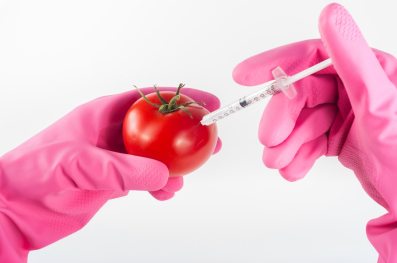
I recently published an article in the American Journal of Clinical Nutrition[1], which is kind of a big deal for me since this is one of the first articles where I really feel ownership of the idea. One of my main research interests and what I also did my PhD work on is one-carbon metabolism (yes, nerd alert big time). Basically, this is a pathway centered around folate designed to transfer carbon units for all kinds of biological processes, so if things go wrong here it has a major impact on the whole system. This is partly why inhibitors (blockers) of this pathway are widely used as antibiotics and chemotherapeutics[2]. I could (and probably will) write multiple blog posts on this fascinating and complex biological system, but for now, I will tell you a bit more about the new study.
Actually, this study began with me doing the literature review for my PhD thesis where I wanted to cover pretty much all intervention studies with nutrients related to one-carbon metabolism (I soon realized that this was impossible in the timeframe I had, but did a fair job and ended up with 539 references)[3]. I did cover quite a lot of folate studies and thought that it was strange that no one had noticed the marked decreases in insulin resistance (Insulin and HOMA-IR) values, so I asked my supervisor how hard it was to do a meta-analysis of them. “Easy”, she replied; should have known better. All of the work started in spring 2016 and has finally been published in the American Journal of Clinical Nutrition – almost 3 years later. This tells you something about the speed of science sometimes. Of course, I did not do all the work by myself and have to give a big shout out to especially the last author Jane for providing some much-needed structure and a more clinical angle on the discussion.
The findings in the study were quite interesting as we found that folate supplementation lowered fasting insulin and HOMA-IR indicating that subjects taking folate were less insulin resistant (better of) compared to a control (placebo) group. Another funny finding was that changes in homocysteine were linked to clear changes in both fasting glucose and glycated hemoglobin (HbA1c), and also tended to be associated with changes in insulin and HOMA-IR. Homocysteine is a molecule that is linked with detrimental health outcomes (here insulin resistance), and homocysteine is lowered by folic acid supplementation, which is hypothesized to be a benefit for health. So long story short, we found that the more you can lower homocysteine the larger improvements we see on insulin resistance. This would normally mean that we would also lower the risk of type 2 diabetes… However, we did not find many studies examining the effect on type 2 diabetes (only 2) and overall this did not show marked effects on risk – probably due to the limited number of studies and the modest (if any) effect. Disappointing… That would have been a really good story.
So, should you then take an extra vitamin pill with folic acid to prevent type 2 diabetes? Well, no. First of all the improvements in insulin resistance was not translated into a clear reduction in risk of type 2 diabetes. Meaning that we cannot see clear effects on the disease we were hypothesizing to prevent. Furthermore, there are some concerns around potential increased risk of cancer and thus uncritically supplementing with folate cannot at present be recommended[4](https://hawcproject.org/assessment/public/). However, our results are still interesting since there might be some remarkable prospects for people already at high risk of developing type 2 diabetes or have type 2 diabetes, with regards to cardiovascular risk (stroke). One very large study has shown that for people with high plasma glucose values or diabetes have a marked reduction (34%) in stroke risk when receiving folic acid[5]. This link between folic acid, type 2 diabetes, and stroke might explain some of the large differences earlier studies of folic acid supplementation found with regards to CVD risk reduction. Thus, as always, more research is needed. Moreover, folate is just one of the components of one-carbon metabolism and the balance/optimal functioning of this pathway depends upon a number of nutrients including other B-vitamins such as B12 [6]. And this is what I spend much of my research time on and untangling this complex link between folate and disease is probably going to keep me busy for a while…
References
[3] Lind MV. The role of diet in one-carbon metabolism and epigenetics, a metabolic syndrome perspective. University of Copenhagen, Faculty of Science, Department of Nutrition, Exercise and Sports, 2016. PhD thesis.



 So, tomorrow we are having a journal club at work (no, we are not sitting around reading each other’s diaries) where I have chosen an article, which we are going to discuss.
So, tomorrow we are having a journal club at work (no, we are not sitting around reading each other’s diaries) where I have chosen an article, which we are going to discuss.